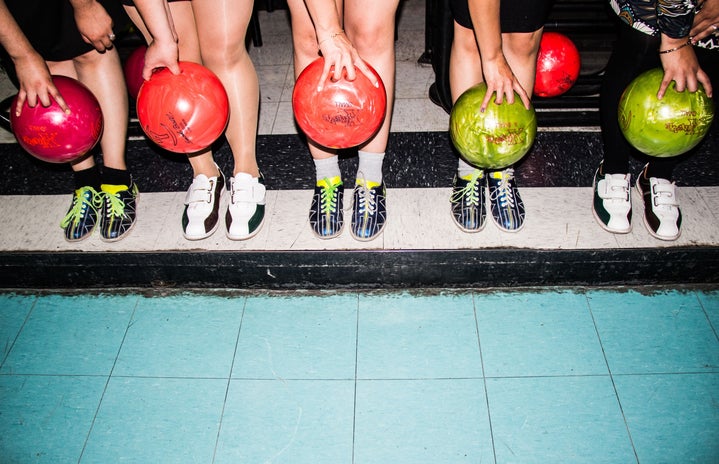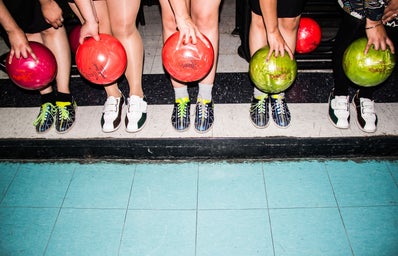One of my New Years resolutions for 2018 was to reduce my carbon footprint. Many people including myself have the goal to be more eco-friendly, and have attempted to take shorter showers or to recycle. These are fantastic steps, but it wasn’t until recently that a friend really made me think about just how much I throw away on a daily basis. As a country and as a planet, we have a trash problem. Taking steps to generate less waste is a great way to keep spending habits down and the environment cleaner. These are some tips that have really helped me to reconsider my habits and to be a more eco-friendly person, and I hope that they can be just as helpful to you all as well!
-
Don’t Use Lids And Straws
At fast food restaurants and on-campus dining spots, it is common to be handed a drink cup at the cash register, and the lids and straws will be by the drink machine itself. Just skip the lid and straw! Earlier this year, you may have seen the tragic, viral video of a sea turtle who had a straw stuck in its nose. As a scuba diver tried to pull it out, the turtle hissed in pain as his nose bled. If you didn’t see the video, just know that it was painful to even look at and that straws that end up in oceans, rivers, and landfills are very dangerous to animals. If you need to use straws because of limited mobility, or you just can’t stand to drink without one, invest in a reusable metal or straw that you can carry in your backpack, purse, or car. These can easily be cleaned as needed with dish soap, water, and pipe cleaners.
2. Carry A Reusable Water Bottle
Carry a plastic or aluminum water bottle with you wherever you go! This may be an obvious one, but it really helps! Once you start doing this, you will find yourself drinking more water and being less tempted to buy soda and coffee from vending machines. When you go to on-campus dining spots, you won’t even need to take a disposable cup, because you can fill up your own water bottle at the fountain.
3. Think Twice Before Taking Those Plastic Utensils
Are you about to take food back to eat in your dorm room or apartment? Don’t take plastic utensils! You have forks and spoons back at your place! If you want to be extra, you can carry a metal fork and spoon with you in your backpack at all times, and simply wash it between uses. This way, you can skip plastic utensils the same way you skip straws. Always having reusable utensils with you on campus will be convenient and eco-friendly.
4. Re-purpose Old Containers
Why buy new containers when you can reuse the containers that your food has already come in? With a little creativity, it’s easy to re-purpose plastic, glass, and cardboard packaging into useful containers and storage items. For example, I use old Pickleman’s soup containers instead of Tupperware. I washed out an empty tub of peanut butter and used it as a container for my DIY Lavender Sugar Scrub. I painted a pretty glass jelly jar and use it to hold pencils on my desk. I made another jar into a flower vase. I have also covered lots of instant oatmeal boxes with duct tape and used them as cute drawer organizers for nail polish, lotion, perfume, and hair accessories. If you like to paint and draw, old boxes and food containers make great paint palettes, rinsing cups, protective “splash guard” surfaces, and even canvases.
5. ~Greenify~ your wardrobe
Americans buy and throw away a lot more clothing items than other countries in the developing world do. In Europe and Australia, it is more common to own a few high-end, high-quality clothing items and wear them frequently than it is to have a large, constantly rotating wardrobe made of cheap, low-quality clothing, as is the trend in the U.S. As a result, we generate a lot of textile waste. To greenify your closet, consider condensing your wardrobe to the items you wear most and don’t buy new items when you don’t need to. This will help you to stay organized and green. Is it okay to splurge on something cute in a store sometimes? Totally! But you don’t need new clothes to replace everything you’ve ever thrown away. The next time you clean out your closet, donate your unwanted clothes to Goodwill. If you want to make some cash, take your clothes to Plato’s Closet. H & M also participates in a clothing recycling program- if you bring in old clothes and fabrics, they will take it from you and give you a 15% store-wide discount card, which can be used anytime! If you are crafty, sew your old t-shirts, sweatshirts, or sweaters into a simple quilt! You can also design new clothes out of scraps of old ones. Too difficult? Take a soft old sweater or tie-dye t-shirt and re-cover one of those little decorative pillows on your bed or couch.
6. Rethink your period
When it’s that time of the month, consider using menstrual cups or reusable cloth pads. The average woman will use and throw away over 11,000 pads and tampons in her lifetime. Think about all that money and all that trash! Switching to reusable products will save you money in the long run and will generate so much less waste. Menstrual cups are made of silicone and are inserted and worn similarly to a tampon. Some common brands are DivaCup, Lunette Cup, JuJu Cup, and Eva Cup. They will vary in size and firmness, so it is beneficial to look at online reviews or compare a few in the store before you buy one. Reusable pads are usually made of cotton, so they are much more soft and breathable than disposable pads. Most brands have a waterproof layer on the underside to prevent any leakage. Some common brands are GladRags, Hannahpad, and PartyInMyPants. Both cups and reusable pads last for years if cleaned and cared for properly.
7. Bring Reusable Bags When You Shop
There’s no reason we need to use a bunch of plastic bags every time we buy anything! Tell the grocery store clerk or the cashier in a clothing store that you brought your own bag. If you have a small shopping load, bringing one tote bag will be sufficient. If you’re going to have a large grocery load, bring several reusable bags with you, or don’t use bags at all if you forgot. Just put your grocery items in your cart without bags, wheel it out to the car, and don’t worry about bags or containers until you get home and have to transport the items up to your dorm or apartment. Invest in a nylon bag that can be rolled up into a tiny compact pouch and carried in your purse!
8. Rethink Your Coffee and Tea
Do you use a Keurig? Target sells reusable Keurig Cups. Instead of buying and throwing away those little plastic cups constantly, buy your favorite Starbucks or grocery store coffee grounds in bulk and fill up a reusable K-cup. It saves money and cuts out that unnecessary waste. Are you a tea drinker? Consider buying loose-leaf tea and using a reusable metal or silicone tea diffuser, such as the adorable ManaTea. If you love coffee shops as much as I do, bring your own travel mug with you so you won’t waste a paper cup and plastic lid! Plus, your mug is likely to keep the drink hot longer and be less prone to spilling.
8. Ditch the Paper Towels
Make sure to keep dish towels and hand towels handy in the kitchen and bathroom, and use them instead of paper towels. For cleaning, use stained towels and old toothbrushes if you don’t want to get your nice towels dirty.
9. Be Mindful Of The Beauty Products You Buy
Look for brands with packaging made of recycled materials. Some Shampoos and Conditioners contain “fast-rinse” technology, which means it leaves less of a film on your hair and can be rinsed out more quickly, reducing water usage. Also, make sure not to buy products containing plastic microbeads. Many exfoliative body soaps and face washes contain these, and Americans wash thousands of pounds of them down the drain every year. They are dangerous because they get into rivers and oceans and clog fishes gills and intestines. Instead, buy exfoliative sugar or salt scrubs to meet the same need. To be kind to your fellow mammals, buy makeup and soap that is not tested on animals :)
Good luck with all of your eco-friendly endeavors! You’ll be a pro in no time.


